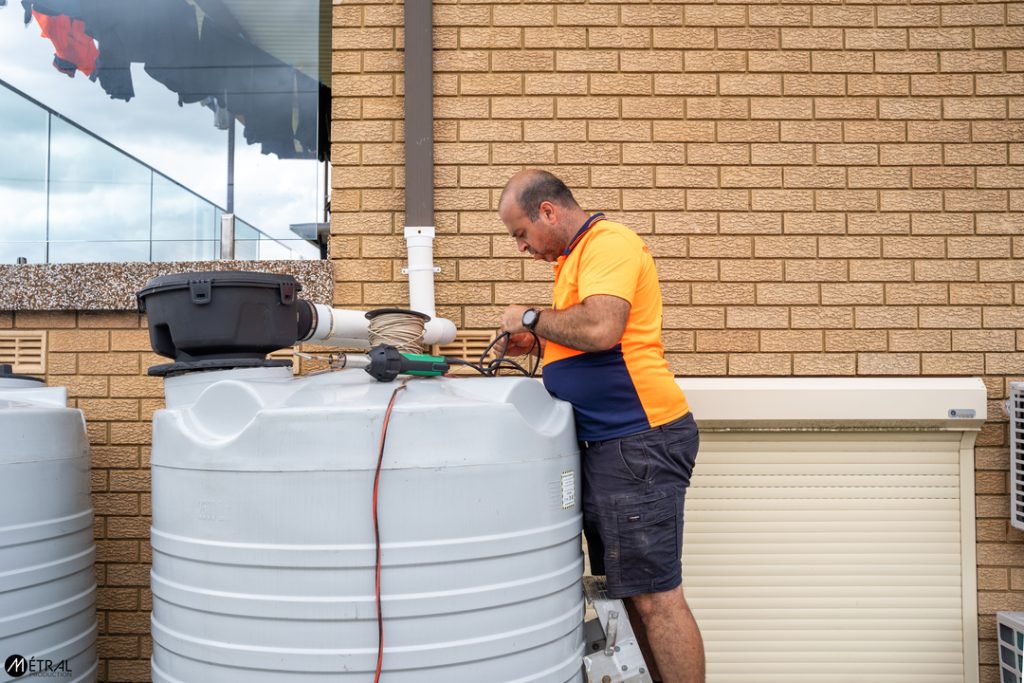Many may wonder what the key difference is between hard and soft water. The truth is, you’ll notice the difference with each use. From the moment you turn on the taps, till your last sip of water, hard water can leave a lasting impression. This ranges from a strange metal taste in your mouth, to a cloudy like appearance in the water.
If you’re unsure about what water harshness or softness is about, keep reading.
What is Hard Water?
Hard water occurs when the mineral content is above 60mg/L of calcium carbonate. In this case, it contains a high level of dissolved minerals such as calcium and magnesium. This then results in the build up of these minerals in your mains water or rainwater supply water pipes, causing damage to appliances by way of scale build up. Think of plaque on your teeth. It starts out very soft but within 20 – 30 seconds, it turns hard and only a trip to the dentist and descaling can remove it. to appliances. Along with this, it causes a range of issues for the home and personal care.
Why is hard water so prevalent in Australia?
Nation-wide properties are more susceptible to issues pertaining to hard water. In the Penrith area of Sydney, the mains water supply is particularly harsh. From a mineral build up in water supply systems, appliances and more. .
How is hard water created?
- Rainwater Falls: Rainwater is naturally soft because it doesn’t contain any dissolved minerals. It starts as pure H₂O.
- Water Seeps Through the Ground: As rainwater travels through soil, sand and begins to pick up minerals. This is especially from limestone, chalk, or gypsum-rich rocks.
- Minerals Dissolve in Water: The primary minerals that dissolve are calcium and magnesium ions. These are picked up from rocks like limestone and dolomite.
- Hard Water Is Formed: The water becomes hard, as the concentration of dissolved calcium and magnesium increases.
- Hard Water Enters Supply Systems: This mineral-rich water is then collected in rivers, lakes, and more.
- Hard Water Reaches Homes and Businesses: Once delivered through pipes, hard water can cause scale build-up in appliances like kettles. This then affects soap’s ability to lather.
Soft Water Vs Hard Water
Now that we’ve established what hard water is, you may be wondering “How does soft water compare?” This kind of water is the ideal water type for your premise, as it’s free from that high concentration of minerals.
It’s first important to recognise the key differences, so you can ensure no water hardness. Soft water is when there’s a significantly lower mineral content than hard water. Which means that it delivers on its fundamental purpose.
Appliances
Given the presence of calcium deposits, hard water can cause significant damage to appliances. This in turn impacts its performance in the long term. On the other hand, the soft water prolongs your appliances by preventing a build-up of these minerals.
Skin and Hair Health
When there’s a presence of hard water, this does not interact well with the foaming agent SLS or Sodium Lauryl Sulfate. Which in turn commonly results in skin and scalp irritation. This is primarily found within cleansing products, such as shampoo and hand wash. In comparison, soft water ensures a smoother and cleaner lather on the skin and scalp. You’ll also find that the presence of soft water requires less soap and shampoo.
Household Cleaning
When hard water lingers, this can present itself through chalky white deposits on glassware and other dishes. When you try to clean this off, the surfactants in detergent are compromised by the hard water minerals. Since soft water doesn’t have a high mineral concentration, this makes cleaning easier through less product use.
Pipes
Hard water causes the accumulation of minerals in the piping system. This then results in issues such as hindering water flow, alongside a significant spike in internal pressure. With soft water, there’s no opportunity for a mineral build up resulting in water seamlessly travelling through the pipes.
How Can I Reduce Hard Water in My Home?
When you’re looking to reduce the presence of hard water in your environment, there are various steps you can take. The right water filtration system can significantly lower water hardness.
A water softener is most commonly used to lower the mineral content. This system effectively removes calcium and magnesium. All of which is done through an ion exchange process. Which then replaces these with sodium or potassium ions.
Reverse osmosis (RO) systems also provide a targeted removal of any accumulation of minerals. This system works by addressing dissolved minerals through putting pressure on a semi permeable membrane. The RO systems are more commonly used for drinking water taps and not a full home filtration solution.
Take Urgent Action for Hard Water, with Transform Water
Looking to take steps that ensure soft water in your space? At Transform Water, our team is the leading choice in reducing hard water. Whether you’re looking for an office or home water filtration system, we have you covered. Rest assured, we take a tailored approach to every single solution.





